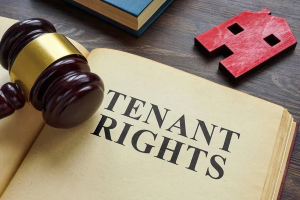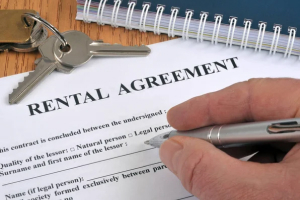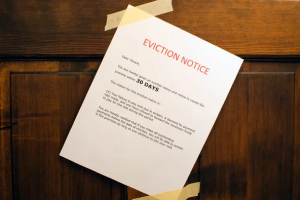
California, known for its scenic beauty, is also home to some of the nation's highest rents and most robust tenant rights. These rights stem from the desire to strike a balance between landlord interests and the needs of renters. Understanding these rights becomes even more crucial as the state's population is recovering post-pandemic.
While primarily contractual, the relationship between a landlord and tenant also has a human element. It's not just about property; it's about homes, memories, and stability. California's laws reflect this by providing numerous protections for tenants. At Halavanau Injury & Accident Law, we understand California landlord-tenant laws and know each party's rights and responsibilities. While the tenant provides rent payments, the landlord must provide property maintenance and not violate the tenant’s rights pertaining to harassment, habitability issues, and other areas.
Learn more about tenant rights under a lease agreement for a rental unit below. Then, give us a call for a free case consultation.
California has a comprehensive set of laws governing landlord-tenant relations. It provides guidelines on every aspect of renting. From the security deposit to the eviction processes, the law has clear rules. This clarity aims to minimize disputes and protect both parties. For example, the repair and deduct remedy allows the tenant to perform repairs and deduct the cost of the rent.
Yet, understanding these laws can be daunting for the average person. They are sometimes complex and frequently change due to new legislation or court decisions. That's where our team at Halavanau Injury and Accident Law comes in. We help navigate the intricacies of enforcing tenant rights, ensuring your rights are always upheld.

A rental agreement is a binding contract between the landlord and the tenant. It lays out the lease terms, from duration to the amount of rent. Both parties should understand and agree to these terms before signing. Without a rental agreement, the potential for conflict increases. The existing agreement provides the initial step in analyzing the dispute between the landlord and a tenant when a dispute arises. However, if the provision is contained within the agreement, it does not make it automatically enforceable.
The landlords will sometimes insert provisions in the lease agreement that may not be enforceable as a matter of law. An experienced tenant rights attorney will be able to carefully analyze the provisions of your agreement for such provisions.
There are mainly two types of rental agreements: a "month-to-month" and a "fixed-term" lease. Month-to-month leases don't have a set end date and can be terminated by either party with proper notice, absent any ordinances that allow only so-called “just cause” evictions. On the other hand, fixed-term leases bind the tenant and landlord for a specific time, like a year. This type provides more stability but less flexibility.
Fixed-term leases automatically convert to month-to-month at the end unless renewed. Understanding the difference is crucial. It helps both tenants and landlords set expectations. Also, knowing the type of lease can assist in planning future moves or property changes. The landlord must also explain your rights at the end of the lease.
If your rental unit in San Francisco is subject to a local rent control ordinance, a landlord cannot simply terminate the agreement unless one of the specific “just causes” that are listed in the ordinance are present. Some other counties and cities in the Bay Area have their own rent control ordinances, and it is crucial to understand what specific local ordinance, if any, applies to the tenant’s unit, as it can make a big difference from the legal perspective.
The terms and conditions of a lease outline the dos and don'ts. They might state the property's pet policy or rules about altering the space. Violating these terms can lead to penalties, including potential eviction. However, in most situations, absent any serious or egregious violations impacting immediate safety or having a potential cause of immediate harm, the tenants must be given an opportunity to cure the conditions that they had allegedly caused. Sometimes, the landlords will use an alleged violation of the lease terms as a basis for the eviction without providing a tenant an opportunity to cure, which can violate the tenants’ rights.
Remember, a lease isn't just a document; it's a commitment. For instance, bringing a pet can violate the agreement if a lease prohibits pets. Similarly, landlords must adhere to their conditions, like providing maintenance. This mutual respect and adherence to terms create a harmonious living situation.
Security deposits act as a safety net for landlords. They cover potential damages or unpaid rent. In California, landlords must return this deposit within 21 days of the lease ending. Any deductions, like for repairs, must be itemized and provided to the tenant.
Understanding how security deposits work is crucial. Tenants should always document the property's condition at move-in and move-out. This protects against undue deductions when moving out.
Some Californian cities have rent control ordinances. These laws limit how much landlords can increase rent. They also provide additional eviction protections. Living in a rent-controlled unit can offer stability, especially in fluctuating markets.
For landlords, it's crucial to know if their property falls under these laws. There are specific rules and exceptions to consider. For tenants, rent control can offer an added layer of protection. But remember, not all properties are covered, so always check local ordinances or contact an experienced attorney to assist you.
A. Landlord's Responsibility for Maintaining a Habitable Living Space
Landlords must ensure their properties are safe and livable. This includes necessities like heating, plumbing, and clean water. They must also promptly address mold, leaks, or structural dangers. Providing a habitable space isn't just ethical; it's a legal obligation. If the landlord breaks that obligation, he may face a lawsuit, especially if there is a pattern of ignoring serious habitability issues.
B. Common Issues Like Repairs, Pest Control, and Mold
Several issues can affect habitability. These range from needed repairs, infestations, or mold growth. Landlords have to address these problems within a reasonable time. Ignoring or delaying the necessary repairs can lead to legal consequences.
C. Tenant's Right To Request Repairs
Tenants have the right to request necessary repairs. If landlords don't respond, tenants can take specific legal actions. Sometimes, they might withhold rent to fix issues and deduct the cost. However, always consult with legal professionals before taking such steps. Submitting the complaint to a local building department, health protection agency, or local Rent Board is another option to explore. Finally, the tenant may file a lawsuit if the violations continue. An experienced attorney can help you in this process.

A. Fair Housing Laws and Protected Classes
California follows federal Fair Housing laws, ensuring no discrimination in housing. Landlords can't deny housing based on race, religion, gender, and other protected classes. Everyone deserves equal access to housing opportunities. California state laws have similar protections.
B. Prohibitions Against Discriminatory Practices
Landlords cannot use discriminatory practices in advertising, renting, or setting lease terms. For example, they can't advertise "adults only" or refuse to rent to families with children. Such actions can lead to legal consequences. Similarly, the landlord cannot deny renting a unit based on the prospective tenant having disabilities or using housing assistance vouchers to pay for rent.
C. Remedies for Discrimination
Victims of housing discrimination have rights. They can file complaints or even sue for damages. If you suspect discrimination, it's crucial to document everything and seek legal advice.
A. Overview of Rent Control Laws
Rent control limits rent hikes and offers eviction protections. While it doesn't exist statewide, many California cities have these ordinances. They aim to provide stability in tight housing markets.
B. Rent Stabilization Ordinances
These are local laws that determine how much rent can increase. They often protect older properties and long-term tenants. The specifics vary, so knowing your city's ordinance is crucial.
C. Rent Increase Limitations
Typically, rent control laws have annual increase caps. They might be tied to inflation or set percentages. Landlords must adhere to these caps and provide proper notice before any hikes.

A. Grounds for Eviction
Evictions aren't arbitrary. Grounds for eviction include unpaid rent, lease violations, or property damage, among others. The reasons must be valid and legally recognized. In fact, in San Francisco, the reasons must be specific, and they are outlined in the local rent ordinance if the property is subject to rent control.
B. Eviction Procedures and Notices
Proper procedure is a must. Typically, landlords serve a notice, like a three-day or 30-day notice, to pay rent. If tenants don't remedy the issue or leave, the landlord may start the eviction process in court.
C. Tenant Defenses and Rights During Eviction
Tenants have rights, even during eviction. They might challenge the eviction's validity or reason. Legal representation can help tenants understand and exercise these rights.
A. Landlord's Access to the Rental Property
Landlords can only enter a rental property after a certain point. California law states that landlords must provide a 24-hour notice, except in emergencies. They can only enter for valid reasons like repairs or inspections.
B. Tenant's Right to Privacy
Even though they're renting, tenants have a right to privacy. Unwarranted intrusions or frequent disturbances violate this right. Both parties must respect boundaries for a harmonious living arrangement.

A. Tenant Protections Against Landlord Retaliation
Landlords cannot retaliate against tenants for exercising their rights. This might include requesting repairs or reporting code violations. Such retaliation is illegal and can lead to penalties.
B. Examples of Retaliation
Retaliation examples include sudden rent hikes, reduced services, or eviction threats after a tenant complaint. Recognizing these signs can help tenants protect their rights and seek legal advice.
C. Reporting Harassment and Retaliation
If tenants face harassment or retaliation, they should document everything. Consulting legal professionals can help determine the best course of action. Taking early steps can prevent further issues.
A. Importance of Renters' Insurance
Renters' insurance isn't just about protecting belongings. It also offers liability coverage, which can be crucial during accidents at home and outside of it. For a small monthly cost, it provides peace of mind.
B. How It Can Protect Tenants
Beyond property protection, it can cover temporary housing costs if a rental becomes uninhabitable and protect personal property if damaged. It can offer legal coverage in case of lawsuits from accidents in the rental. Every tenant should consider its benefits.
Navigating the intricacies of renting in California is challenging due to its laws and regulations. Understanding your rights as a tenant is paramount. At Halavanau Injury and Accident Law, we're dedicated to guiding you through this process.
With our specialized advice, tenants can confidently navigate California's rental landscape. Lean on our expertise for a seamless renting experience. Let Halavanau Injury and Accident Law be your partner in upholding your tenant rights.

California's renting landscape is ever-changing. But with the proper knowledge and support, you can navigate it confidently. If you feel your rights as a tenant are in jeopardy, reach out.
Our team at Halavanau Injury and Accident Law is ready to assist. With our expert advice, you're never alone in the renting journey. Let us help you create a safe and harmonious living space. Call us today.
Schedule Your
Free Consultation
Request Your Free
Confidential Consultation